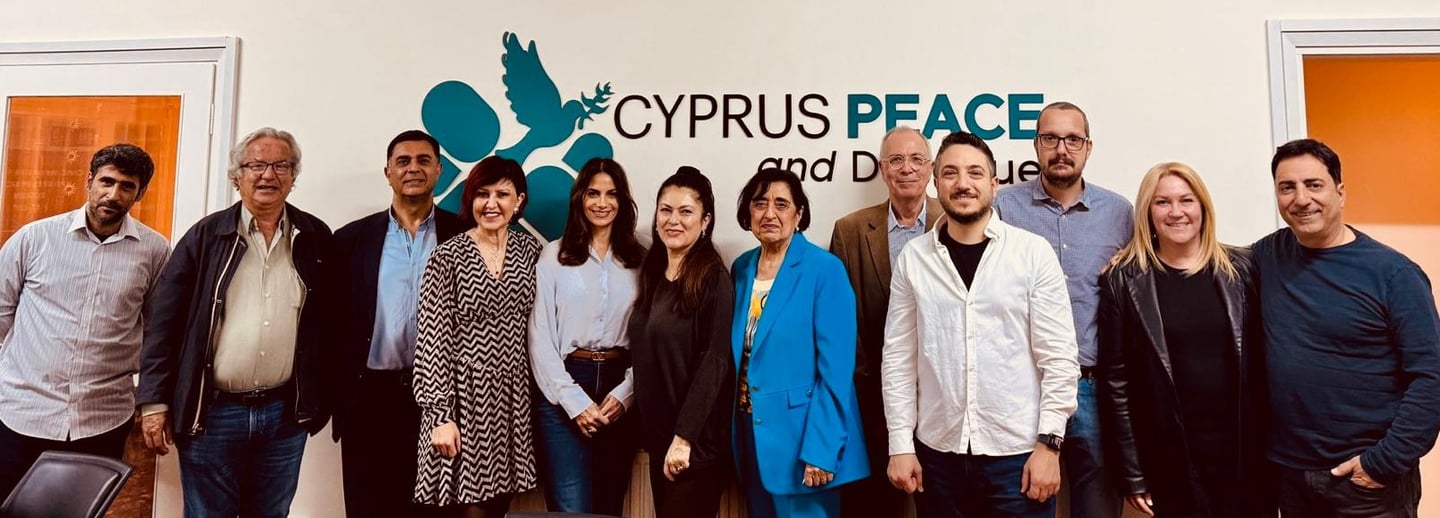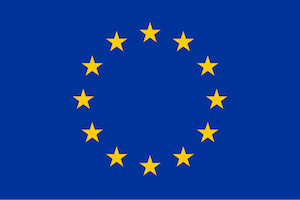Who We Are?
Individuals who share the understanding that a comprehensive solution to the Cyprus problem
We are a group of Turkish Cypriot and Greek Cypriot individuals who share the understanding that a comprehensive solution to the Cyprus problem based on the BBF model is required as a matter of urgency for the safeguarding of the island’s future.
We bring experience from a range of fields, including history, sociology, education, peacebuilding and negotiation, international relations, policy, and civil society; all steadfast in a life-long commitment to lasting peace in Cyprus. Our approach places equal emphasis on the need for courageous political leadership alongside inclusive, cross-community grassroots cooperation. We are not affiliated with any political party nor governmental body in Cyprus or beyond.
Our Goal for Peace
A united bi-communal, bi-zonal federal state based on political equality, regardless of ethnic, racial, or linguistic background, nationality, gender, or any other status. A Cyprus that adopts a culture of peace at all levels, and which serves as a model of justice and peaceful co-existence to the wider region and beyond.


Our Vision
Our Mission
CPDC brings together key stakeholders, leading personalities, and organisations from the two communities in Cyprus, to revisit and build on existing mechanisms, and find new creative modalities for long-lasting peace.
Aims
To establish mechanisms to support cultural, socio-economic, and political steps towards a comprehensive solution to the Cyprus issue, based on the bi-communal, bi-zonal federation model.
To engage experienced individuals, including key politicians, negotiators, and third parties, in non-public discourse and policy planning.
Designing and implementing workshops and trainings at a grassroots level, aiming to foster trust-building and cultural reconciliation.
To create public awareness and understanding of a culture of peace and federalism through cross-communal dialogue, events, and activities.
To leverage and facilitate new opportunities for cooperation and networking amongst grassroots peace initiatives and civil society actors.
To promote the benefits of a united Cyprus to a wide range of sectors and private businesses, and to facilitate inter-group business collaboration.
Principles and Values
We, as CPDC, seek to cooperate and collaborate with a cross-section of actors and stakeholders in aspiring to work towards our mission and vision, incorporating the following key values and principles into our work and practice:
Cooperation and knowledge sharing
Culture of peace
Community
Equality – including, but not limited to, gender,
socio-economic, and political
Universal Declaration of Human Rights
Respect and dignity for all
Inclusion, cultural pluralism, and commitment to diversity
Freedom of speech and respecting differing points of view
Transparency and good governance
Integrity and ethics
The Cyprus problem remains one of the longest unresolved conflicts in the modern world. Nicosia is the last divided capital city in the world. This decades-old, protracted problem persistently intertwines the island’s future with its past, creating uncertainty for its population. However, the impact is far more wide-reaching than solely for the two main communities of Cyprus (Turkish Cypriots and Greek Cypriots). The Cyprus problem creates instability for the region as a whole and potentially increases the risk of conflict and violence.
There are various stakeholders involved in the Cyprus problem, including the guarantor powers of Greece, Turkey, and the United Kingdom, as well as the United Nations, which has been present on the island since 1964 due to inter-communal tensions.
Negotiations to find a peaceful settlement have been held throughout various periods since 1968, and for a bi-zonal bi-communal federation (BBF) since 1977-79, but to no avail. The 2002–2004 Annan Plan peace process was arguably the closest that Cyprus has come to resolving the Cyprus problem, in that it was the only process to result in a referendum. The Annan Plan was a UN proposal for a united Cyprus consisting of a federation based on the
political equality of Turkish Cypriots and Greek Cypriots. After months of negotiations, the proposal was put to a public referendum on the 24th April 2004, a week before Cyprus would join the EU. Turnout was between 87-89% in both communities. 65% of Turkish Cypriots voted “Yes” to the Plan, but only 24% of Greek Cypriots did so, with 76% voting “No”.
As such, finding a solution to the Cyprus problem is also vital to the integrity of the EU, given that Cyprus joined the union in May 2004 as a de facto divided island. This has also resulted in discrepancies between civic rights afforded to both communities, despite efforts on the part of the EU to address issues arising from geographical limits to its jurisdiction.
The years of 2002–2004 saw increasing change in Cyprus. On the 23rd April 2003, the Turkish Cypriot leadership opened the Ledra Palace checkpoint, allowing Greek Cypriots and Turkish Cypriots to cross to the other side. Until then, virtually no one could cross from one side of Nicosia to the other, meaning the two main communities of the island remained separated with no contact for nearly 30 years. Over the years, another 8 checkpoints opened, yet the majority of Cypriots continue to live separately within their respective sides.
Following the Annan Plan, peace talks began again in 2008 between Demetris Christofias and Mehmet Ali Talat, but did not yield a tangible result. The most recent negotiations between Mustafa Akıncı and Nicos Anastasiades came very close to a solution in 2017 in Crans-Montana, but no final agreement was reached.
Still, a comprehensive settlement based on a bi-zonal, bi-communal federation, based on UN parameters and ensuring political equality, remains the only feasible and negotiable model for Cyprus.
There is a need for a thorough appraisal of past peace processes; the accumulation of knowledge and experiences will help develop a road map for peace. Simultaneously, the promotion of a culture of federalism is crucial to finding viable peace in Cyprus, beyond the sphere of politics. Moreover, there is a need for a culture of peace based on dialogue and cooperation, in order for a solution to be sustainable.
Cyprus: Background
FOLLOW US
Working towards peace.
CONNECT
ENGAGE
cpdc.communication@gmail.com
© 2025. All rights reserved by CPDC.


This website was funded by the European Union. Its contents are the sole responsibility of CPDC and do not necessarily reflect the views of the European Union.


Sakarya Street 7, Nicosia, Köşklüçiftlik, 99010 northern Cyprus


